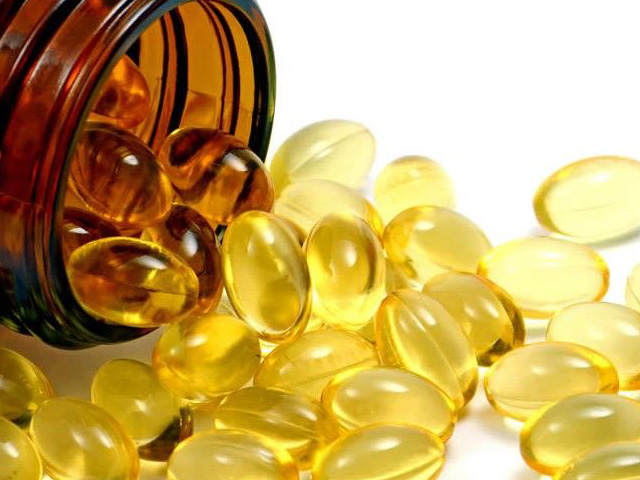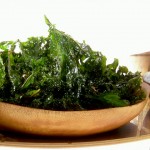Vitamin E is an essential part of the canine diet … but why? To understand its role in the body, we need to delve into the interactions between free radicals and antioxidants.
According Dr. Jennifer Coates, author of the Dictionary of Veterinary Terms: Vet-speak Deciphered for the Non-Veterinarian, free radicals are “a group of atoms containing oxygen and electrons that can damage cell membranes, proteins, DNA and other parts of the body.”
Coates says that free radicals form as a normal part of the metabolic processes that produce energy within the body, but they can also be produced at a greater rate when a pet is sick, exposed to toxins or simply becomes older. The problem with free radicals, she says, is that they have a chemical structure that essentially “steals” electrons from nearby molecules, oftentimes turning those molecules into free radicals that can go on to do more cellular damage. Holistic veterinarian Dr. Patrick Mahaney of Los Angeles, CA adds that free radical damage can be a contributing factor to “heart disease, cancer and arthritis” in dogs.
In contrast, antioxidants are molecules that can give up electrons to free radicals without becoming free radicals themselves. “This stops the cycle of cellular injury,” Coates says. Not only is vitamin E a potent antioxidant, but it also plays other roles in the body, like forming cell membranes. “All of its functions are not yet known,” Coates adds.
Vitamin E deficiencies are quite rare in dogs, according to Coates, but when they do develop, the typical symptoms can include “poor vision, neurologic abnormalities, reproductive dysfunction and an impaired immune system.”
So vitamin E is obviously a crucial element to your dog’s diet, but does commercial dog food provide sufficient levels for your pet?
Vitamin E in Your Dog’s Diet
“Vitamin E can naturally be found in ingredients going into some commercially-available pet foods, such as green leafy vegetables, plant oils, including coconut, hemp, olive, safflower, and others,” says Mahaney. “Vitamin E may also be added to pet foods as a supplement. Vitamin E is composed of two forms of molecules, tocopherols and tocotrienols. Tocopherols are those more-commonly added to pet foods and supplements in the form of ‘mixed-tocopherols.’”
Coates adds that any commercially available pet food that meets Association of American Feed Control Officials (AAFCO) standards will contain at least the minimum amount of vitamin E that a healthy dog should need.
If you’d like to enhance your dog’s intake of vitamin E by using supplements, it’s probably best to check with your vet first. “If owners are seeking to achieve a medicinal effect by adding vitamin E to their pet’s supplement regimen, I recommend consulting with their veterinarian to determine the appropriate dosing and frequency of administration,” Mahaney says. “Many of my patients take nutraceuticals (food-derived substances having medicinal benefits) containing vitamin E as a natural preservative. Fish oil commonly contains vitamin E to deter spoilage, yet all fish oil products should be refrigerated once opened.”
Do Dogs Need Vitamin E Supplements?
Although vitamin E is an essential vitamin, it may not be necessary to give your dog supplements in addition to a nutritionally-balanced dog food. Dr. Adam Denish, VMD of Rhawhurst Animal Hospital in Elkins Park, PA says that the decision to supplement a dog’s diet with vitamin E is again a decision best made by the careful consideration of your vet.
“Most good-quality pet foods have the recommended amount of vitamin E, so there is no real reason to add it their diet,” says Denish. “However, dogs with dry or itchy skin, or skin and ear allergies could benefit from it.”
Most veterinarians will recommend that vitamin E be given orally, but if a dog’s skin problems are localized, vitamin E oil can also be applied directly to the skin, says Coates.
Can Vitamin E Supplements be Dangerous?
“Vitamin E is one of the four vitamins (A, D and K are the others) that are fat-soluble for both humans and animals. That means that they are stored in the fat of the liver, so an overdose is possible. With all of the other water-soluble vitamins, they are easily excreted by the kidneys and are less likely to cause problems if overdosed,” says Denish.
Mahaney concurs with the potential danger of disproportionate amounts of vitamin E. “Excessive vitamin E can affect blood clotting by inhibiting normal platelet aggregation (clumping). This effect has been noted in patients taking vitamin E supplements, but not those consuming diets containing vitamin E,” he says. “[This is why] I recommend a veterinarian prescribes the appropriate dosage and frequency suitable to a patient’s body weight and health needs.”
So, while vitamin E supplements are something to be considered, depending upon your dog’s health and lifestyle, they are certainly no substitute for a healthy diet containing all of the nutrients needed to live a happy and healthy life.
As for other vitamins? Find out more about if you really need to give your dog supplements.











